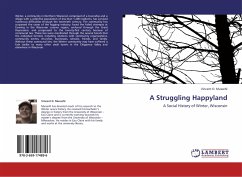Winter, a community in Northern Wisconsin comprised of a township and a village with a collective population of less than 1,200 residents, has survived numerous difficulties through the twentieth century. The community has surpassed the cease of the logging industry, faced the failed attempts at farming in the Wisconsin cutover region, endured through the Great Depression, and progressed to the twenty-first century because of communal ties. These ties were manifested through the several bonds that the individual formed, including relations with community organizations, community events, churches, businesses, schools, friends, and family. Without these communal ties, the Winter community may have suffered a fate similar to many other small towns in the Chippewa Valley and elsewhere in Wisconsin.








